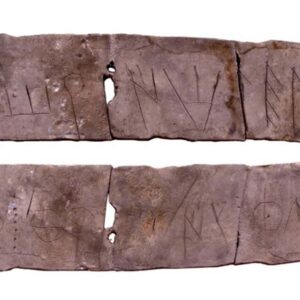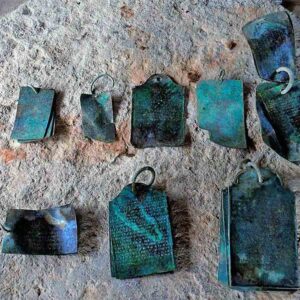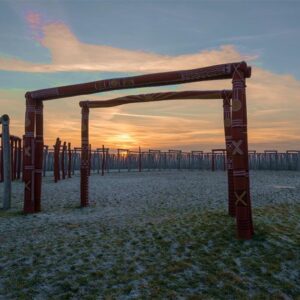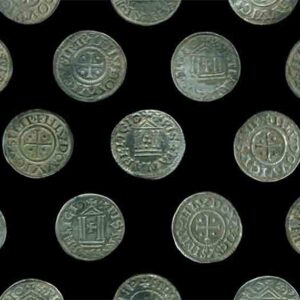Up to date
27 October, 2023 – 18:46
Sahir
Declassified Chilly Battle Spy Satellite tv for pc Photographs Reveal Roman Forts In Syria and Iraq
- Learn Later
Of their examination of aerial pictures from the Sixties and 70s, archaeologists have recognized 396 uncharted Roman forts within the Syrian and Iraqi areas alongside the Syrian steppe, from “the world’s first spy satellite tv for pc packages”. These pictures have inadvertently revealed new insights into the Roman Empire’s operations, rising from declassified Chilly Battle spy satellite tv for pc pictures. What has emerged features a plethora of beforehand unknown forts, inflicting a complete re-evaluation of life on the Roman frontier!
The finds, printed within the newest version of Antiquity, level to a major variety of buildings misplaced eternally, doubtless destroyed or broken over latest a long time on account of numerous components like agricultural enlargement, city growth, and the influence of wars.
- The Roman Legions: The Organized Navy Pressure Of The Roman Empire
- Roman Fort Found Hidden Beneath English Bus Station
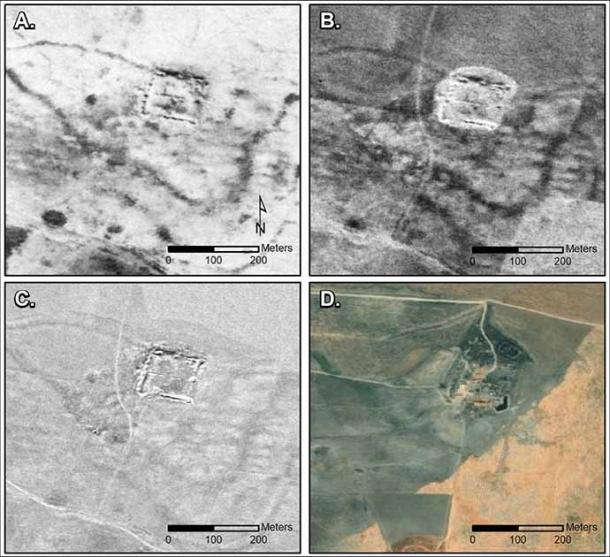
Castellum at Inform Brak from evolving pictures over time: A) CORONA (1102, 17 December 1967); B) CORONA (1105, 4 November 1968); C) HEXAGON (1204, 17 November 1974); and D) trendy satellite tv for pc imagery (© ESRI and Maxar Applied sciences) (determine by authors; CORONA and HEXAGON imagery courtesy US Geological Survey/Antiquity Publications Ltd).
Wall or Street? Inspecting The Conventional Perception
In 1934, Antoine Poidebard, a pioneering French Jesuit explorer who utilized aerial archaeology from his biplane, carried out a survey of the area, documenting a string of 116 forts. Till now, historians believed that these forts have been erected as a part of a defensive position to safeguard the japanese province of the empire from Arab and Persian invasions, in addition to marauding nomadic tribes with a penchant for capturing and enslaving.
This discovery has raised the query by the authors: “Was it a wall or a street?”

The invention of such numerous forts with their widespread distribution challenges this conventional notion that these buildings have been primarily erected for defensive functions to maintain enemies at bay. The brand new proof means that these forts doubtless served as facilitators of secure passage for caravans and vacationers alongside routes that skilled substantial nonmilitary visitors.
- Examine Reveals Lasting Prosperity Alongside the Roman Street Community
- The Third Punic Battle: Rome’s Triumph, Carthage’s Tragedy
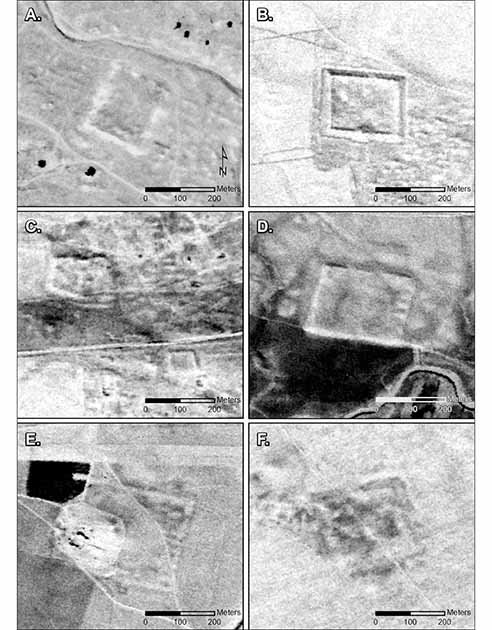
Pattern of newly documented advanced forts. (determine by authors; CORONA imagery courtesy US Geological Survey/Antiquity Publications Ltd)
The authors counsel that these forts have been extra prone to be outposts and havens, fostering cooperation and safety, quite than being hostile obstacles designed solely for protection, altering the methods by which we see the Roman Empire. This reinterpretation underscores the Roman Empire’s emphasis on commerce, communication, and interplay with areas exterior their direct management.
“Because the Nineteen Thirties, historians and archeologists have debated the strategic or political goal of this method of fortifications,” mentioned the lead writer of the analysis, Prof Jesse Casana, of Dartmouth faculty in New Hampshire, US, in a press launch. “However few students have questioned Poidebard’s fundamental statement that there was a line of forts defining the japanese Roman frontier.”
The 396 newly uncovered websites, hid by trendy growth, are distributed broadly from east to west, countering the notion that these forts constituted a north-south border wall. Researchers now hypothesize that these forts have been constructed to facilitate cross-border commerce, safeguarding caravans touring between the japanese provinces and non-Roman territories whereas additionally selling communication between the east and west.
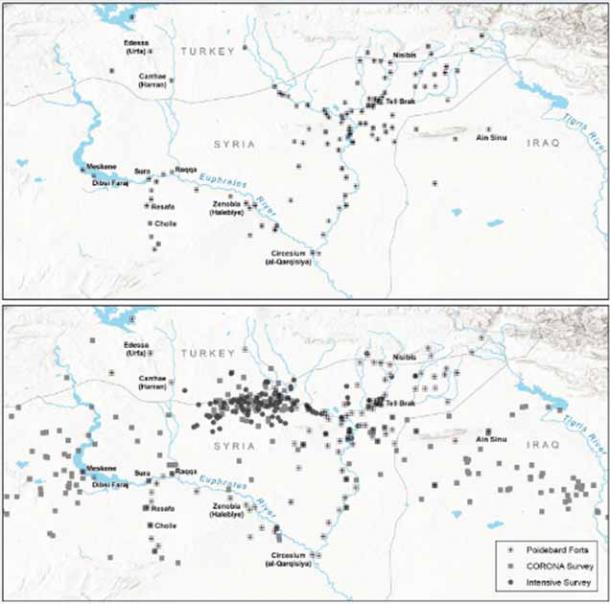
Map displaying distribution of forts as found by Poidebard. (Casana et al. Antiquity Publications Ltd)
The forts spanned roughly 116,000 sq. miles (300,000 sq. kilometers), “extending from Mosul, on the Tigris River in Iraq, via Ninawa province, throughout the Khabur and the Balikh valleys, persevering with to the semi-arid plains west of the Euphrates River, resulting in western Syria and the Mediterranean,” in response to the research.
Excessive-Decision Photographs: Declassified Knowledge
The high-resolution pictures analyzed within the research have been captured throughout flyovers carried out by satellites from two US navy packages: the Corona Undertaking, which operated from 1960 to 1972, and Hexagon, energetic from 1971 to 1986, studies CNN. It’s noteworthy that the Corona Undertaking’s pictures have been declassified in 1995, whereas the photographs from the Hexagon program have been made out there to the general public in 2011.
These pictures obtained from the Hexagon and Corona packages are of immense worth to archaeologists on account of their potential to protect snapshots of landscapes which have subsequently undergone fast disruption and transformation. Primarily based on early estimates, the scientists reckon that these forts sprung up between the 2nd and sixth centuries AD
Prof. Casana states:
“We have been solely in a position confidently to determine extant archaeological stays of 38 of Poidebard’s 116 forts. As well as, lots of the doubtless Roman forts we’ve documented on this research have already been destroyed by latest city or agricultural growth, and numerous others are underneath excessive menace.”
Casana anticipates that the cautious evaluation of future spy knowledge and imagery has huge potential for future historic revelations.
High picture: A pattern of Poidebard’s (1934) aerial pictures: A) fort at Qreiye; B) Roman fort and medieval caravanserai at Birke; C) fort at Inform Zenbil; and D) castellum at Inform Brak. Supply: Casana et al. Antiquity Publications Ltd
By Sahir Pandey
References
Casana, J., et al. 2023. A wall or a street? A distant sensing-based investigation of fortifications on Rome’s japanese frontier. Antiquity. Out there at: https://doi.org/10.15184/aqy.2023.153.
Davies, C. 2023. Chilly warfare satellite tv for pc pictures reveal lots of of unknown Roman forts. Out there at: https://www.theguardian.com/science/2023/oct/26/cold-war-satellite-images-hundreds-unknown-roman-forts.
Weisberger, M. 2023. Spy satellite tv for pc photographs reveal lots of of long-lost Roman forts, difficult decades-old idea. Out there at: https://edition.cnn.com/2023/10/25/world/roman-forts-spy-satellite-photos-scn/index.html.


